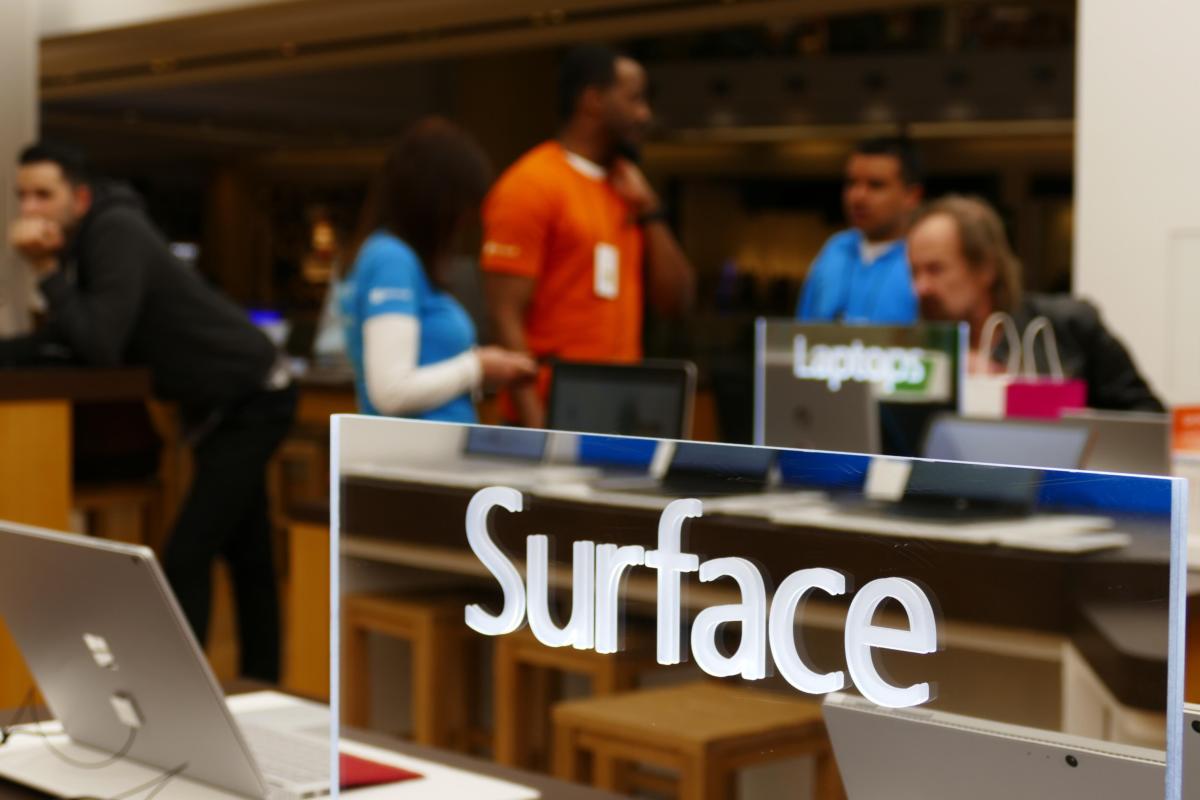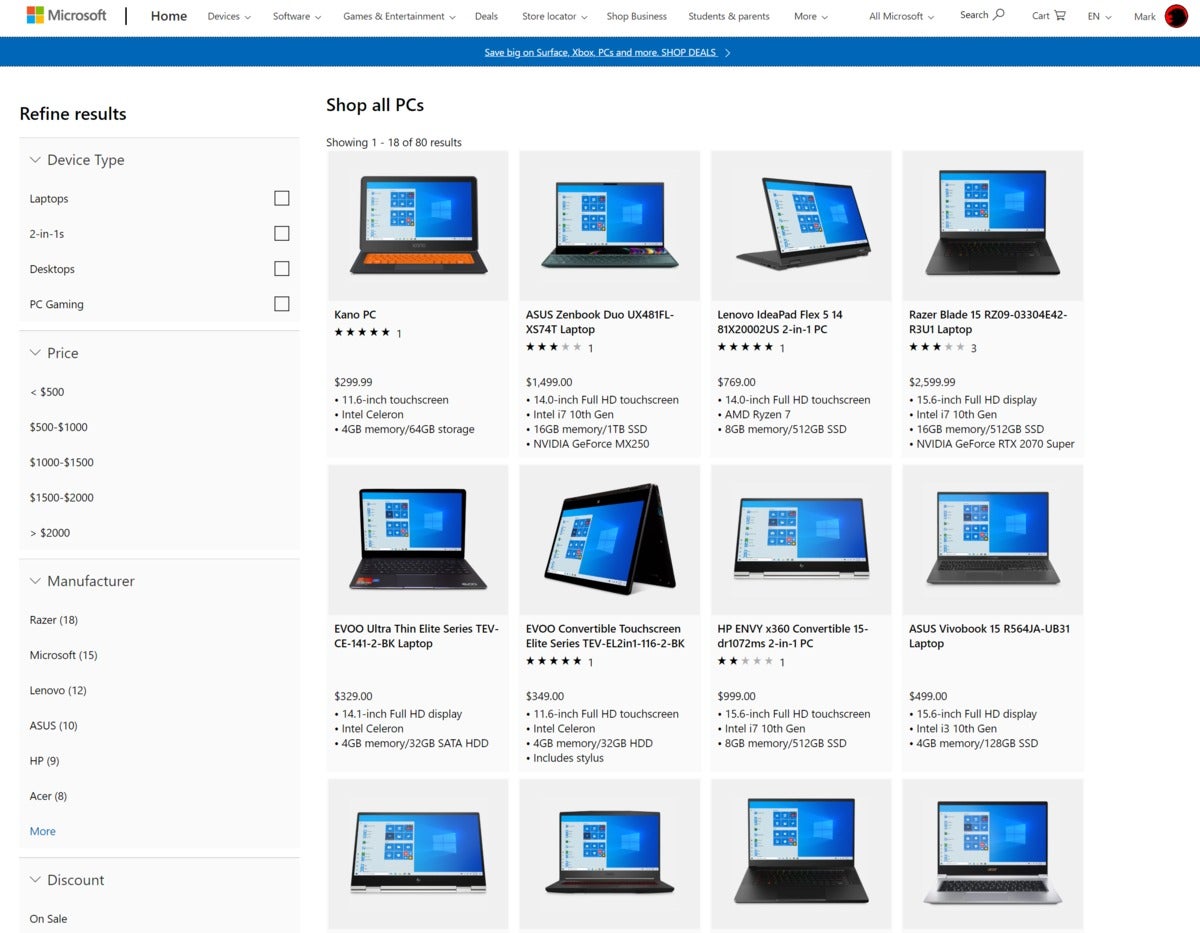Closing Microsoft Stores means more support and buying headaches for Windows users - elderhapat1994
Apple Macs "just work" (for straightaway at least). PCs are hobbyist machines. Both are stereotypes, bound, but they might crack some account wherefore Apple Stores are thriving and Microsoft just decided to close totally of theirs.
Microsoft spun the stop into a "original near to retail," one that would constitute driven through its internet site and online gross sales channels, rather than through a web of physical stores. (Amazon must be chuckling at this.) But the writing was on the wall: In 2019, Microsoft shuttered virtually all of its retail kiosks at malls and other shopping centers, leaving the larger Microsoft Stores on variable ground.
If you walked into a mall the last a couple of years, the show was there in front of you: shoppers visited Apple Stores, and generally ignored Microsoft Stores. That's a bit odd, when you think about information technology. A 2018 analysis by Thinknum shows that Microsoft Stores tended to open in the shadow of Apple Stores, indeed that technology buyers would have options from which to choose. And then why did Microsoft Stores fail?
Part of information technology power have just been their respective approaches to retail. Microsoft Stores e'er mat up a bit similar a cafe: a topographic point to hang out and talk technology in general. Orchard apple tree Stores always felt more like an exclusive restaurant: If you're not here to steal something, bring out. You browsed at Microsoft Stores. You visited Apple Stores. The pandemic, of course, had its own, profound effects along both.
 Martyn Sir Bernanrd Williams
Martyn Sir Bernanrd Williams Customers and stave at the Microsoft Store in San Francisco on March 23, 2017.
Microsoft Stores offered PC support, too
Simply viewing Apple Stores and Microsoft Stores similar every bit well, stores, also missed their junior-grade purpose: as a support hub. As anyone who's owned an iPhone knows, if something goes wrong, your first stop is usually an Apple Hive away and its Genius Bar technicians. It's impossible to know how many people visit an Apple Store rightful to graze versus scheduling a repair appointment. But I'd look the proportions swung more toward the service side than in the Windows world. (We asked Microsoft for commentary, just they haven't responded.)
Completion Microsoft's physical stores will certainly injury. I visited Microsoft's San Francisco store on multiple occasions on the way back from employment—sometimes to understand if I could trespass of a holiday promotion, Beaver State to see how consumers were reacting to a late Surface product, operating room occasionally to seek out patronise myself. Microsoft's own Surface products certainly aren't worry-free. Microsoft's Surface Book 2 had numerous bugs, and I've brought our review unit certain servicing before. One of our overheating 15-inch models apparently had a discrete GPU whose natural spring paste failed ended time, which we worked out at the support counter.
I think it's fair, however, to say that consumers expect their Orchard apple tree products to work. When they don't,something is vicious, and an Malus pumila tech is necessary to fix it. When a exemplary PC exploiter encounters a hemipterous insect, they suspiration, swear, and bulge hunting down solutions. PC buyers tend to understand that a $599 PC will embark with a few blemishes. Apple wants you to bring its products in for servicing, like-minded a luxury automobile. A Windows PCs can be tweaked by whatever shade-tree auto-mechanic.
 Microsoft
Microsoft Active forward, this will be the "Microsoft Store". Can Microsoft revamp it into something transformative?
We'll likely see this trend continue. With the epidemic still violent, there's less emphasis happening browsing physical stores. Instead, people still preponderantly shop online, and simply return items with forceful flaws or that they can't fix themselves. As customers learn more about their PC, they're turn to community support sites like Reddit, how-to videos, and other DIY fixes. Microsoft could also change state toward a strategy it's pursued in the past: establishing "stock-inside-a-store" outposts at retailers like Go-to-meeting Buy.
What Microsoft Stores offered was a trusted, neutral brand for showcasing the PC equally a whole, and providing Robert William Service when necessary. That now goes away. Microsoft cabal theorists will see this as another example of Microsoft's march away from the consumer, and there's some truth to that, though Windows and Xbox get plenty of attention at major retailers like-minded Best Buy, Walmart, and Target. And it's undoubtedly a little weird that while Microsoft has drawn its physical stores, AT&T, Apple, T-Nomadic, and Verizon stores still exist.
I'd like-minded to call back, though, that Microsoft now has an unprecedented opportunity to overhaul sales and reenforcement in overmuch the same way it reinvented the online conference. This twelvemonth's Microsoft Build was a brilliant representative of how to provide on-demand sessions across doubled prison term zones, unneurotic with focused "labs" Roger Sessions where developers could involve questions. With Microsoft Stores closed, where does Microsoft fit from here?
Can Microsoft take reward of consumer smartphones to name problems? Can it use remote-access technologies to do the same? Does IT invest in local electronic computer haunt shops as authorized armed service dealers? Give the axe the online Microsoft Store suffice for online gross sales what the Surface did for PCs: use 360-degree GIFs surgery even short, neutral hands-on videos to provide a more comprehensive look at the merchandise?
For the small term, closing the Microsoft Stores vindicatory accelerates the trend of the DIY Personal computer enthusiast. The challenge now for Microsoft is to take its move away from its brick-and-trench mortar stores and discovery an opportunity online.
Updated at 1:39 PM to note the prior family relationship with Best Buy.
Source: https://www.pcworld.com/article/399341/closing-microsoft-stores-means-more-support-and-buying-headaches-for-windows-users.html
Posted by: elderhapat1994.blogspot.com


0 Response to "Closing Microsoft Stores means more support and buying headaches for Windows users - elderhapat1994"
Post a Comment